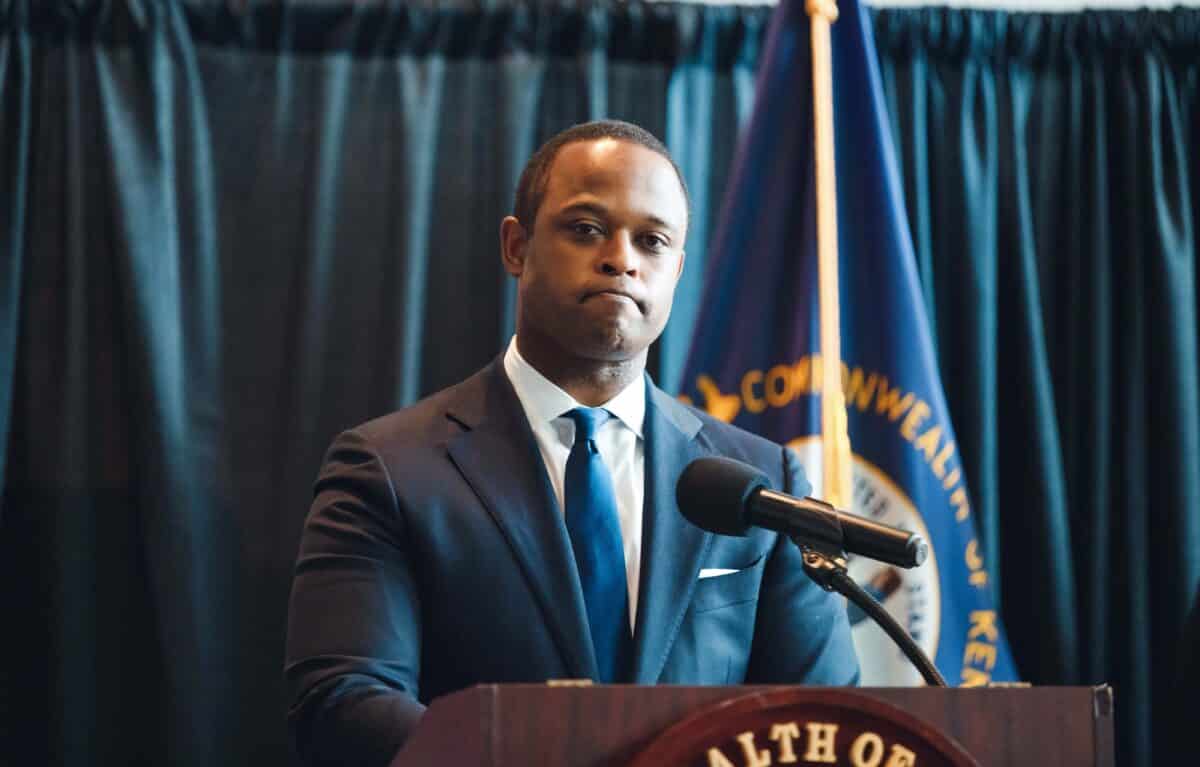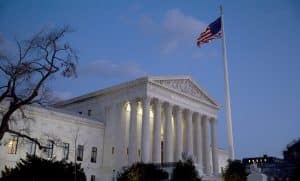The Republican attorneys general of New Hampshire and Kentucky are the only ones in the nation who have not yet signaled which side they will take in the central legal challenge to the outcome of the U.S. election pending before the U.S. Supreme Court.
Kentucky Attorney General Daniel Cameron and New Hampshire Attorney General Gordon MacDonald have not made public comments about what they intend to do and their offices did not respond to requests for comment from The Epoch Times.
Texas sued the states of Georgia, Michigan, Wisconsin, and the Commonwealth of Pennsylvania earlier this week, alleging the states conducted the 2020 general election in violation of the Constitution.
Nineteen Republican state attorneys general backed Texas in the lawsuit. The states they represent are Missouri, Alabama, Arkansas, Florida, Indiana, Kansas, Louisiana, Mississippi, Montana, Nebraska, North Dakota, Oklahoma, South Carolina, South Dakota, Tennessee, Utah, West Virginia, Arizona, and Alaska. Six of the states filed a motion to join the case as intervening parties: Missouri, Arkansas, Louisiana, Mississippi, South Carolina, and Utah.
Twenty Democratic state attorneys general backed the defendants: California, Colorado, Connecticut, Delaware, Hawaii, Illinois, Maine, Maryland, Massachusetts, Minnesota, Nevada, New Jersey, New Mexico, New York, North Carolina, Oregon, Rhode Island, Vermont, Virginia and Washington. None have filed motions to intervene.
The only Democratic attorney general who has not filed a brief in support of the defendants, Iowa’s Tom Miller, intended to do so but was overruled by the state’s Republican Gov. Kim Reynolds.
The Republican attorneys general of Idaho and Wyoming declined to participate in the lawsuit. Republican Ohio Attorney General Dave Yost filed a brief on “behalf of neither party,” arguing in favor of the court resolving the central question raised by Texas but opposing the relief sought by the Lone Star State.
Texas and the 19 states that support it are asking the Supreme Court to forbid the counting of the electoral votes cast by the four defendant states. The plaintiff demands that the court order the defendants to either conduct special elections or select a new set of presidential electors, in accordance with the Constitution, through their legislatures.
“Lawful elections are at the heart of our constitutional democracy. The public, and indeed the candidates themselves, have a compelling interest in ensuring that the selection of a President—any President—is legitimate. If that trust is lost, the American Experiment will founder. A dark cloud hangs over the 2020 Presidential election,” Texas Attorney General Ken Paxton stated in the filing (pdf) with the Supreme Court.
The central question before the court is whether officials in the four defendant states altered election rules in violation of the Constitution. Texas and its supporters argue that state courts and state officials in Pennsylvania, Georgia, Michigan, and Wisconsin imposed rules that were not part of state election laws, triggering a flood of mail-in and absentee ballots while removing safeguards necessary to preserve the integrity of the ballot.
The defendants and their backers argue that Texas and its backers are seeking to undo the results of an election they do not agree with, while interfering with the sovereignty of the defendant states’ right to conduct their elections. They argue that the states enacted common-sense measures in response to the pandemic of the Chinese Communist Party (CCP) virus, commonly known as the novel coronavirus.
“Texas seeks to invalidate elections in four states for yielding results with which it disagrees. Its request for this Court to exercise its original jurisdiction and then anoint Texas’s preferred candidate for President is legally indefensible and is an affront to principles of constitutional democracy,” the opposition brief filed by Pennsylvania Attorney General Josh Shapiro states.
The Supreme Court is expected to announce its decision on whether to review the case by Dec. 14, the date on which presidential electors cast their votes.



